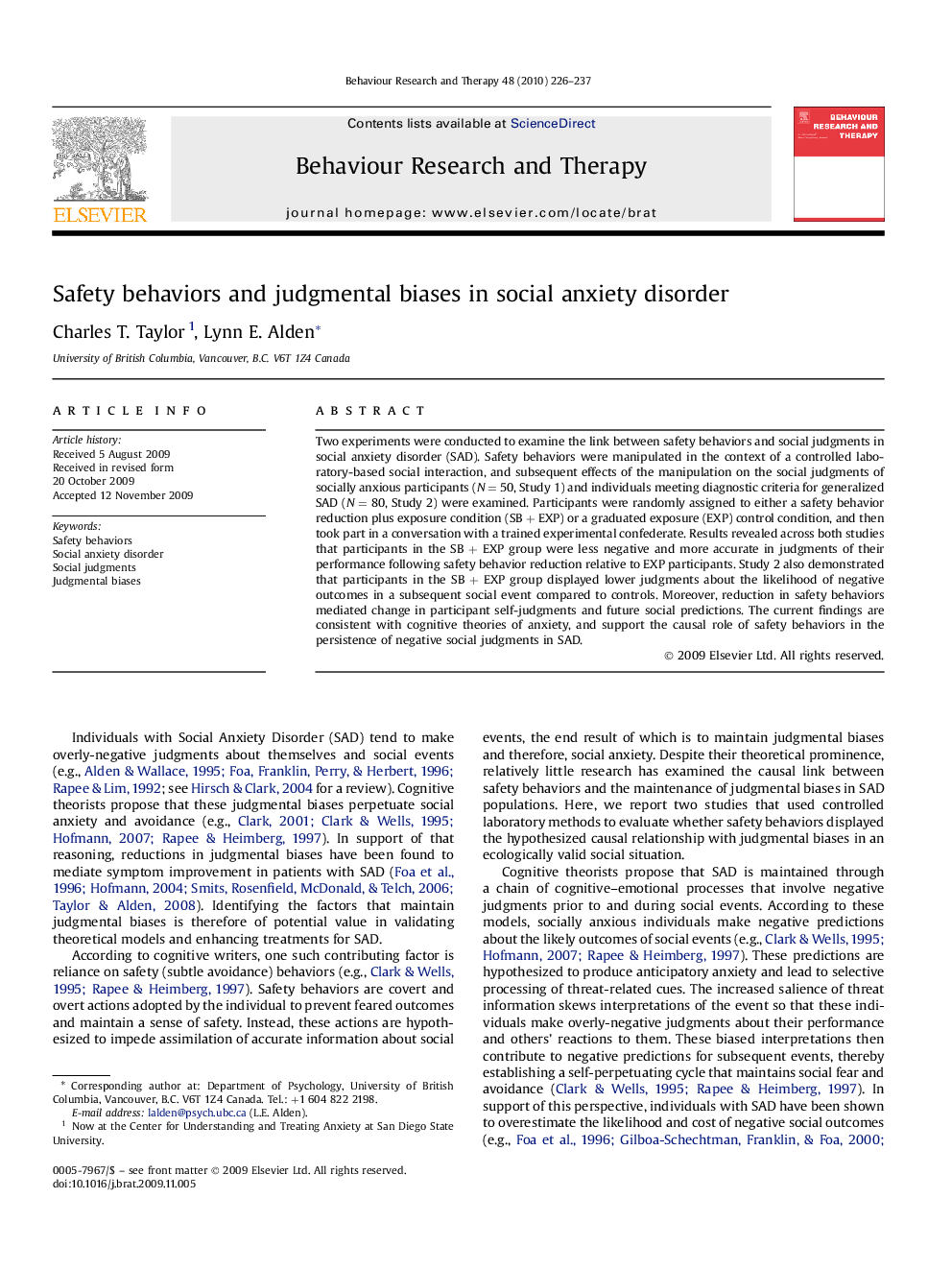| Article ID | Journal | Published Year | Pages | File Type |
|---|---|---|---|---|
| 10444740 | Behaviour Research and Therapy | 2010 | 12 Pages |
Abstract
Two experiments were conducted to examine the link between safety behaviors and social judgments in social anxiety disorder (SAD). Safety behaviors were manipulated in the context of a controlled laboratory-based social interaction, and subsequent effects of the manipulation on the social judgments of socially anxious participants (NÂ =Â 50, Study 1) and individuals meeting diagnostic criteria for generalized SAD (NÂ =Â 80, Study 2) were examined. Participants were randomly assigned to either a safety behavior reduction plus exposure condition (SBÂ +Â EXP) or a graduated exposure (EXP) control condition, and then took part in a conversation with a trained experimental confederate. Results revealed across both studies that participants in the SBÂ +Â EXP group were less negative and more accurate in judgments of their performance following safety behavior reduction relative to EXP participants. Study 2 also demonstrated that participants in the SBÂ +Â EXP group displayed lower judgments about the likelihood of negative outcomes in a subsequent social event compared to controls. Moreover, reduction in safety behaviors mediated change in participant self-judgments and future social predictions. The current findings are consistent with cognitive theories of anxiety, and support the causal role of safety behaviors in the persistence of negative social judgments in SAD.
Related Topics
Health Sciences
Medicine and Dentistry
Psychiatry and Mental Health
Authors
Charles T. Taylor, Lynn E. Alden,
